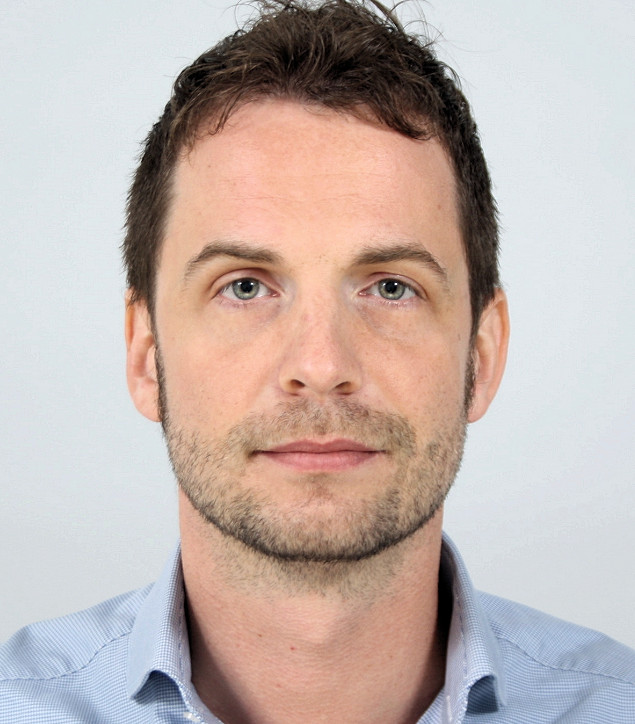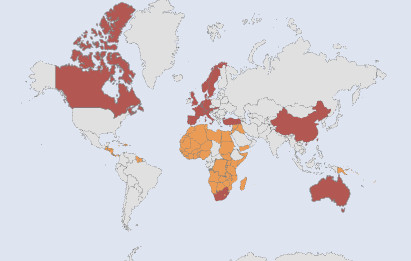Posted: June 24, 2021

Photo: RVO
The new Chair of the IEA Solar Heating and Cooling Programme, also known as IEA SHC, is Tomas Olejniczak, an all-around energy transition and renewable energy expert at the Netherlands Enterprise Agency (RVO), part of the Ministry of Economic Affairs and Climate. He was elected for a 2-year term during an online Executive Committee meeting last week. Olejniczak will replace Daniel Mugnier from France, who chaired IEA SHC since 2018.
“I am excited to follow in Daniel Mugnier’s footsteps as the new IEA SHC Chair. Daniel worked hard to raise the presence of this Programme within the IEA and beyond. As Chair, I look forward to working with my fellow Executive Committee members and our project leaders to help the solar heating and cooling industry in achieving its full potential in the energy transition,” Olejniczak said of his objectives.
IEA SHC is an international research platform involving around 200 experts from all corners of the globe. The Programme is supported by 19 countries, the European Commission, and eight international organisations, among them the International Solar Energy Society (ISES) and the European Copper Institute (ECI) and the Global Network of Regional Sustainable Energy Centres (GN-SEC). Together, they work on a wide range of topics, from innovative compact storage tank designs to solar cooling and the integration of large-scale solar fields into district heating and cooling networks. IEA SHC is one of nine renewable energy-related Technology Collaboration Programmes (TCPs) under the umbrella of the IEA.
Since his Masters in Energy Science between 2008 and 2011, Olejniczak worked as an independent energy consultant in different private and public organizations before he joined RVO in 2014. As an RVO programme officer, he is active in designing, monitoring, and implementing various national renewable energy subsidy schemes for solar heating, heat pumps, and other renewable energy technologies. Olejniczak is well versed in how IEA TCPs function as he is the representative of the Netherlands in the Heat Pump Technologies since 2018.

IEA SHC members: Country (yellow) and Sponsor (orange). Chart: IEA SHC
Programme on growth path
Olejniczak´s election as IEA SHC Chair coincides with a phase of strong expansion both in terms of widening the research topics and increasing regional coverage.
To support the implementation of nearly zero-energy buildings, IEA SHC will start a research project on Solar Energy Buildings with a high solar fraction this July. Recognizing water as an equally important global resource than energy, IEA SHC grouped researchers who focus on solar energy technologies to decontaminate and disinfect industrial or municipal wastewater to save both water and GHG emissions. The Programme also will continue to work on solar neighborhood planning, process heat and solar cooling targeting the sunbelt regions.
In March, SICREEE (SICA Centre for Renewable Energy and Energy Efficiency) became the sixth UNIDO Global Network of Regional Sustainable Energy Centre (GN-SEC) to become a Sponsor member of IEA SHC. SICREEE has the official mandate of the Ministers of Energy by seven countries in Central America plus the island of the Dominican Republic.
“I will support researchers from the GN-SEC member countries to be actively involved in our various research projects,” says Olejniczak, “as they are important multipliers in these new emerging markets that will invest in energy infrastructure and projects in the next decade.”
Olejniczak also plans to focus on ways IEA SHC can expand its communication to different stakeholder groups, which get underway during Mugnier´s term with the IEA SHC website's facelift. Currently, the Programme uses a number of communication channels to disseminate the results of the research projects:
- Solar Academy webinars: In cooperation with ISES, the Programme offers four webinars a year on different research and innovation fields.
- Solar Heat Worldwide: Annual report on the global and national solar heat market developments, including chapters on key applications such as solar process heat, solar cooling, solar district heating, PV-thermal systems, etc.
- On-site and online training: At the IEA SHC members' request, the Programme offers several day training sessions led by IEA SHC experts on particular research topics.
- Solar Update: Twice a year, in July and December, the online newsletter describes key activities and intermediate results from the research projects.
- Technology Position Papers: Papers highlighting the main results in completed projects, describing state-of-the-art technology in given fields, and listing measures policymakers, industry representatives and research organizations need to take to drive the market.
More information: